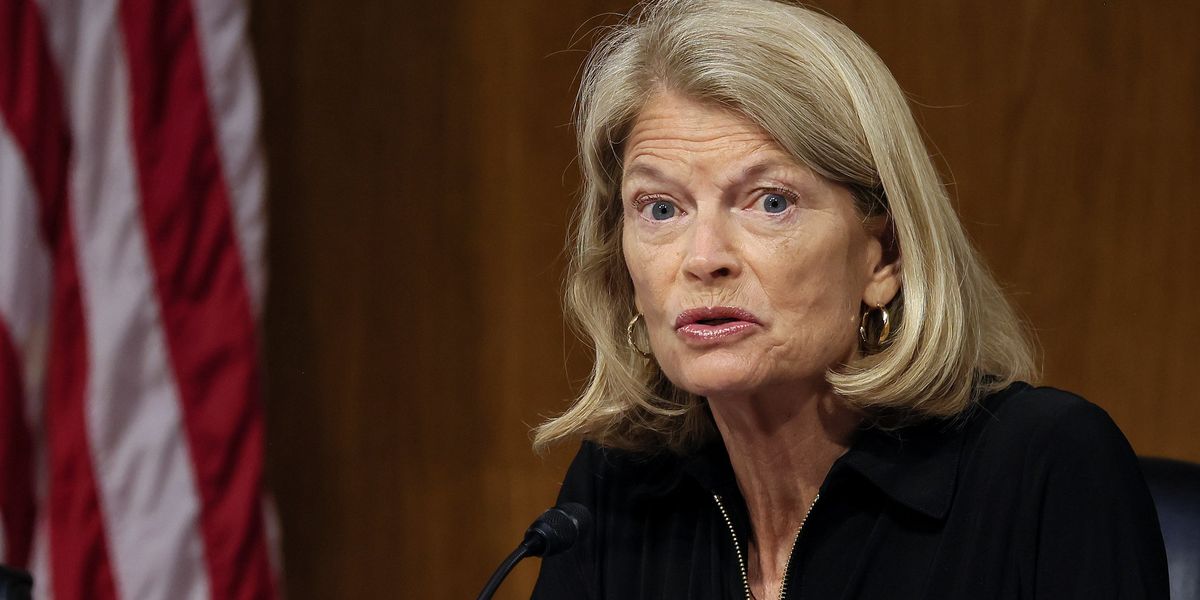Republican Utah Sen. Mike Lee’s hotly-contested provision within the Senate version of President Donald Trump’s “big, beautiful” bill fell out of the draft proposal after an unelected Senate official ruled against its inclusion.
Senate Parliamentarian Elizabeth MacDonough ruled Monday that Lee’s initial proposal to make millions of acres of federal lands across 11 states eligible for sale violates the budget reconciliation process underpinning the president’s sweeping tax and immigration-focused bill. Lee said he is undeterred and a spokesperson for the Senate Energy and Natural Resources (ENR) committee told the Daily Caller News Foundation his revised proposal has been submitted to the parliamentarian for review. (No, Yellowstone Is Not Up For Sale, Senator Leading Charged Public Lands Bill Says)
“Stay tuned,” Lee wrote on X Monday evening regarding his revamped proposal, which would significantly reduce the amount of federal lands up for disposal. “We’re just getting started.”
Lee started working on changes to his public lands proposal to get hunting and conservation groups on board before the parliamentarian ruled against his initial bill, an ENR committee spokesperson told the DCNF.
Housing prices are crushing families and keeping young Americans from living where they grew up. We need to change that.
Thanks to YOU—the AMERICAN PEOPLE—here’s what I plan to do:
1. REMOVE ALL Forest Service land. We are NOT selling off our forests.
2. SIGNIFICANTLY REDUCE…
— Mike Lee (@SenMikeLee) June 24, 2025
MacDonough is an appointee of the late former Democratic Senate Majority Leader Harry Reid and formerly advised then-Vice President Al Gore on Senate procedure when Gore presided over the counting of electoral ballots certifying his loss in 2000 against George W. Bush.
MacDonough is expected to play an outsized role in shaping the president’s budget bill given her responsibility to determine which provisions comply with the Senate’s Byrd rule. The budget reconciliation process has stringent limitations that require provisions to directly affect spending, revenue or the debt limit in order to pass legislation by a simple majority vote.
Proposals that MacDonough rules violate the Byrd rule would be subject to a 60-vote threshold and would have to pass the upper chamber in a separate piece of legislation with some buy-in from Senate Democrats.
MacDonough’s deliberations are part of an opaque process commonly referred to as the “Byrd bath” during which Senate Democrats are seeking to challenge as many provisions within the upper chamber’s proposal they oppose. The parliamentarian has ruled out 32 provisions thus far, including Lee’s public lands sale proposal, from the Senate plan.
The Utah Republican’s proposal would have facilitated the disposal of just a fraction of 1% of federal lands owned by the Bureau of Land Management (BLM) and the Forest Service. The provision notably exempted pristine lands, such as national parks and wilderness areas, and would have targeted acres with no existing permits or federal protections for housing and community development.
His proposed changes include nixing the sale of any Forest Service land and substantially reducing the amount of BLM land eligible for sale in the bill.
The Utah Republican would also limit the disposal of BLM lands to those within five miles of a population center.
Environmental, conservation and hunting groups, including some on the right, largely opposed Lee’s proposal to facilitate the sale of millions of acres of federal lands to public and private bidders. The Utah Republican consistently defended the merits of his proposal, arguing the targeted lands would have little recreation or conservation value and help address a housing shortage in Western states.
In a potential sign of the provision’s lack of popularity, Senate Democrats specifically cheered the public lands proposal falling out of the Senate plan despite the parliamentarian also nixing various energy and natural resources-related provisions Monday evening.
“Democrats will not stand idly by while Republicans attempt to circumvent the rules of reconciliation in order to sell off public lands to fund tax breaks for billionaires,” Democratic Oregon Sen. Jeff Merkley, the top Democrat on the Senate’s budget panel, said in a statement. The tax portion of the Senate plan would permanently extend Trump’s 2017 tax cuts which lowered federal income taxes for Americans across the board and shields certain Americans from taxation on tipped wages and overtime pay in the short term.
MacDonough also struck provisions from the bill Monday that would accelerate the approval of offshore oil and gas projects, remove a Biden-era rule reducing fees for solar and wind projects on BLM land and require the Department of Interior to permit the construction of Alaska’s Ambler Road.
The parliamentarian’s adverse rulings are a blow to Senate Republicans’ legislative ambitions within their draft of the president’s budget bill. Senate Majority Leader John Thune has consistently ruled out overruling the parliamentarian and eliminating the upper chamber’s legislative filibuster, requiring most pieces of legislation to net 60 votes.
All content created by the Daily Caller News Foundation, an independent and nonpartisan newswire service, is available without charge to any legitimate news publisher that can provide a large audience. All republished articles must include our logo, our reporter’s byline and their DCNF affiliation. For any questions about our guidelines or partnering with us, please contact [email protected].
Read the full article here









![Dems Again Refuse to Pay Military, Federal Workers While Pushing for More Obamacare Funding [WATCH] Dems Again Refuse to Pay Military, Federal Workers While Pushing for More Obamacare Funding [WATCH]](https://www.lifezette.com/wp-content/uploads/2025/11/2025.11.08-07.11-lifezette-690f95cb5ce66.jpg)

![House Democrats Caught Spreading False Video to Smear ICE Agents [WATCH] House Democrats Caught Spreading False Video to Smear ICE Agents [WATCH]](https://www.lifezette.com/wp-content/uploads/2025/07/2025.07.11-08.40-lifezette-687176a8d611d.jpg)
